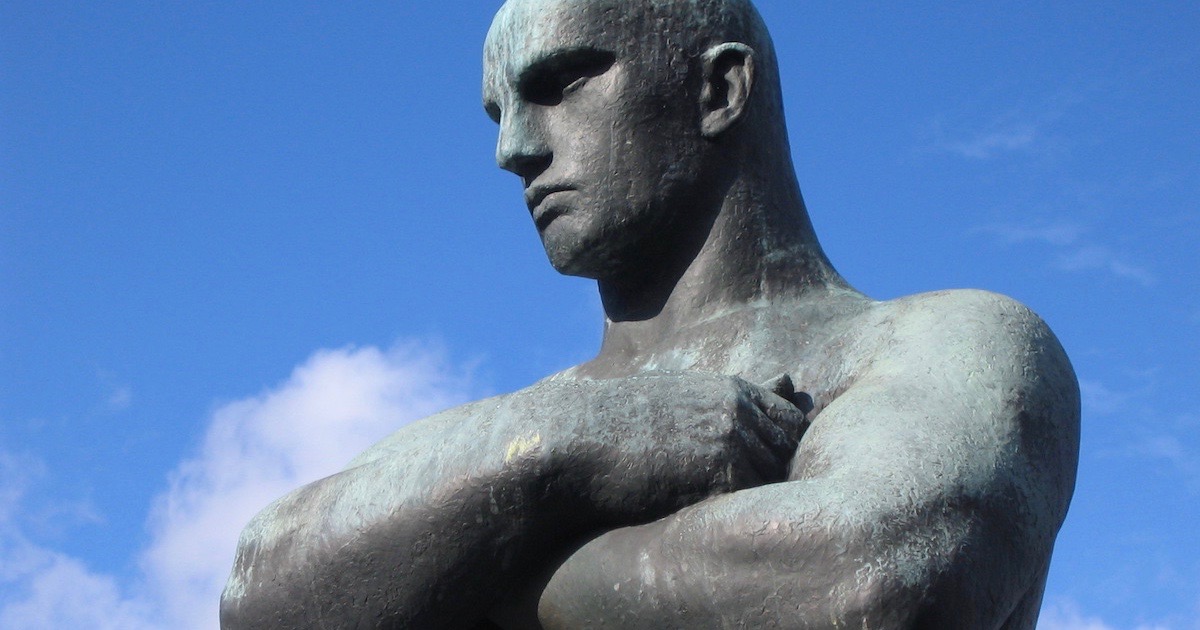 Evolution
Evolution
 Free Speech
Free Speech
Evolution and the “I Won’t Debate” Tactic


Should those who hold that evolution is scientifically correct engage in debate with those who question it? Popular media ridicules any criticism of the theory, and many scientists and other scholars appear reluctant to respond substantively to skeptics.
Regarding another scientific controversy, global warming, Discovery Institute Senior Fellow Wesley J. Smith has presented a different idea. He writes:
We are told continually that the risk of climate change is biblical — so dangerous that it will lead to a calamity worse than (as the City of Berkeley declared recently) the Second World War….
Here’s a case in point, published at the Scientific American website. From, “Why I Won’t Debate Science,” by Kate Marvel:
“Climate denial is like bad science fiction: there’s no internal logic, the characters aren’t compelling, and you can see the scary things coming from miles away.
“So, if we’re being asked to debate things that are essentially fictional, we should respond in kind. Not by misrepresenting the science — that’s too important to mess with.
“But I’m happy to debate fiction, if we’re honest that that’s what we’re doing. I happen to believe very strongly that it was a stupid idea to send Frodo into Mordor with the ring. I also feel that Killmonger had a point, Holden Caulfield is insufferable, and Jane could have done much, much better than Mr. Rochester.”
Good grief, if we face total calamity by the end of the century, why in the world wouldn’t you debate the science and curative proposals? If civilization is really at risk, how can you not pursue every opportunity to persuade the public — even if you think it is beneath you?
I think Wesley is right. On the subject of evolution, do you hear much the same thing as Kate Marvel says about “climate denial”? You bet.
Meeting the “Denialism” Threat
“Science denial,” or sometimes “science denialism,” is a favored catchall term that includes doubts about the theory of evolution and about currently popular models of future climate change. Would you debate with a proponent of science denialism?
Philosopher Sven Ove Hansson is fairly typical of the hardline approach in his analysis last year of “three prominent forms of science denialism, namely relativity theory denialism, evolution denialism, and climate science denialism.” “Relativity theory denialism”? That was a new one to me. His recommendation for meeting the “denialism” threat emphasizes:
In particular, it is important to expose the fabricated fake controversies for what they are and to reveal how science denialists consistently use deviant criteria of assent to distort the scientific process.
That’s not an invitation to a debate. Yet with regard to evolution, at least, the controversy is hardly “fabricated” or “fake,” as we tirelessly document here at Evolution News. And the “criteria” employed by proponents of intelligent design in its contest with neo-Darwinism are far from “deviant.” They are the familiar scientific criteria for weighing evidence and comparing hypotheses, as Stephen Meyer, for one, demonstrates in his book Darwin’s Doubt and as he and other writers do in the follow-up anthology, Debating Darwin’s Doubt.
So there’s plenty of room for good, honest argument. It’s just that Darwin defenders, for reasons of their own, are extremely reluctant to meet us in civil dialogue.
Free Science?
Think of Smithsonian Institution biologist Richard Sternberg, who, during his tenure as editor of Proceedings of the Biological Society of Washington, published a peer-reviewed article by Steve Meyer. The result was not what Sternberg hoped for: scientific debate. Instead, he found himself facing, to put it mildly, a hostile work environment.
And he’s not alone. At the Free Science website, you can read stories of other scientists whose colleagues and superiors reacted similarly to uncomfortable questions about evolution.
We have just said farewell to fifty gifted students who participated in our yearly Summer Seminars on Intelligent Design. They include upper-division undergraduates, graduate students, professors, and a sprinkling of other professionals. Interesting group. We’d love to introduce you to them.
Yet as Ann Gauger pointed out here the other day, we can’t even safely show you photos of the Seminars without carefully cropping out faces, even backs of heads! That’s for fear that we will expose our Seminar graduates to retaliation when they return to their home campuses, or other career perils. This year’s Seminar included some severe warnings to the group about how, as a promising young scholar with doubts about Darwinism, you need to protect yourself from such dangers.
An environment like that is, obviously, not one that’s particularly open to debate. Why not, though?
A perception commonly articulated in the media is that questioning evolution has the potential to undermine the entire scientific enterprise. That’s what we’re told — and nothing less. But to adapt Wesley Smith’s point, if the future of science is really at risk, then surely not debating evolution is folly.
A Hunger for Debate
There’s also a widespread appetite for open discussion. A large majority of Americans — 81 percent, according to a 2016 survey — are in favor of exposing students to “both scientific evidence that supports the theory [of Darwinian evolution] and scientific evidence critical of the theory.” And notwithstanding claims by people like Professor Hannson of a “strong connection with various forms of right-wing politics,” support for teaching “both sides” on evolution is unmistakably bipartisan. The same survey showed:
79 percent of Democrats support teaching the evidence for and against Darwin’s theory, and so do 82 percent of independents and 85 percent of Republicans.
Yet, when the issue of how to teach evolution comes up in discussions of state science standards, here is the kind of headline you see: “Holy Scopes! Arizona’s education chief attacks teaching evolution,” as columnist Laurie Roberts exclaimed in the Arizona Republic. She wrote:
Next up: wherein our children learn that the moon really is made of cheese, the seas are rising because of rocks falling into the ocean, and yes, you really can fall off the end of the earth if you walk far enough.
On the way down, maybe you can ponder whether the theory of gravity is real.
You would think that the Arizona Department of Education had replaced all biology textbooks with Amelia Bedelia books. Or something even more hair-raising. But no. The Department simply wanted to encourage students to analyze and evaluate information about evolution. (For some history on the gravity-evolution comparison, see Granville Sewell, “Why Evolution Is More Certain than Gravity.”)
It’s hard to avoid the suspicion that Laurie Roberts, Sven Ove Hansson, other Darwin proponents aren’t fully up to speed on what the evolution controversy is even about. It does seem, though, that the more you care about evolution, the more you should be willing to explain your position to those who disagree.
